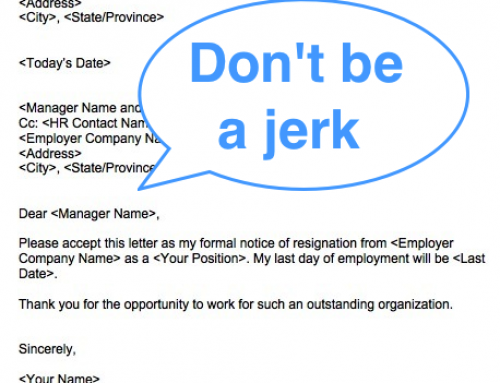This article is part of a four part series on the ways to kick start your job hunt. To start this series from the beginning, read the introduction.
Now that you’ve walked a winding career path, it’s time to hit the pavement and find yourself a job. Finding work is a lot easier with a career direction in focus. Knowing where you want to go is the hard part. Getting there is a matter of finding a map and heading off onto the hunt.
Depending on your desired career direction, there are countless places to look for work. Some opportunities may be obvious, others can take some effort to uncover. Either way, job hunting involves dedicated time and patience. My mom used to tell me “Finding a job is a full time job,” and I’m inclined to believe her. So get your hunting shoes on, and let’s look at some places to find your perfect job.
| Job Hunting Series: |
|---|
|
Here are ten places to look when hunting for a job:
1. Your Network
Your network is a loose term to define your social, business, community, and professional connections. Opportunities come from people, and the more people who know you the better your chances of future success. I’ve found my greatest job hunting success by contacting and speaking with various groups of people. I’ve written a whole detailed article on ways to build and nurture your social network:
Here’s a list of people and a gaggle of groups that may comprise your social network:
- Family: Chances are your family can lend a helping (and familiar) hand. Your biggest job break may come from a relative who wants to keep employment in the family.
- Friends: Be sure to contact your chums and and tell your pals you’re in the market for work. Word travels fast within a circle of friends.
- Colleagues: The breadth and diversity of jobs available though a network of past colleagues is astounding. Do dial-in to the depth of this network by calling past colleagues and finding out what prospects are in the works.
- Alumni Associations: Many alumni associations offer services to match graduates with jobs.
- Professional Clubs: Professionals like to hang out together and are likely to hire from within their peer group. So join clubs like Toastmasters to help in the job hunt.
- Local Networking Clubs: Every city and town boasts clubs to help foster business connections and growth in your area. Joining your local Chamber of Commerce is a great way to find people with your business passion.
- Past Employers: If they hired you once, will they hire you again? You never know until you call a past employer to see if there’s an opportunity in the works for you.
- Social Media: Like to network online? Then try social networking resources like Facebook or LinkedIn.
2. Professional Associations
Are you an Engineer? A Teacher? A Medical Professional? A Writer? Or someone in a profession with an association of club? Many professional associations offer members access to valuable job banks and seek to foster relationships with employers. These job banks are like gold mines to those looking for a golden job nugget. Be sure to ask for a membership discount If you’re unemployed, a new graduate, or looking to enter a new career. Many of these associations will offer deep discounts for those who ask, so don’t be shy.
3. Universities or Colleges
Got a fancy piece of paper? Then use it by calling up your alumni association and asking about alumni job banks and employer contacts. Both of my alumni associations provide online access to awesome job boards for past students. Since I got my degrees from these schools, they are more than likely to boast connections to jobs that match my qualifications. So dig out your old student card, find your student number, and login to an often forgotten source of jobs – your university or college.
4. Search Online
Boot up your browser and start searching for jobs online. For the computer savvy this is a common way to find work. To be honest though, I’ve had more success landing work by consulting my social network or joining a professional association. But I have managed to source some cool jobs by searching job banks online. Some sites offer access to all industries while other provide targeted information to specific careers. Here are some of the bigger, more reputable sources:
Canada:
General Industry Job Boards:
- Canadian Chamber of Commerce
- Canadian Tourism Commission
- Monster Canada
- Eluta
- Working Canada
- GoodWork Canada (environment friendly jobs)
Media Jobs:
- CBC Radio Canada
- Jeff Gaulin (a job for every journalist)
United States:
General Industry Job Boards:
If you have a favorite online job site, please comment below and I’ll be happy to add it to this list.
5. Local Newspapers and Radio Stations
I s$it you not. In today’s fast paced high tech environment, fabulous jobs are still to be had by tearing open a local newspaper. I found my current contract by getting dirty with a little newsprint and consulting the Careers Section. If you live in a smaller city or town, I’ve found local newspapers to be the main source for advertising work. Many local companies and organizations rely on the local radio station and paper to get their voice heard, and haven’t started using the internet or corporate web pages to boast their opportunities as of yet. So don’t forget to consult your community paper to see what’s available in your area. You may just be surprised, I know I was.
6. Job Fairs
Many cities, schools, and industries boast job fairs to match job hunters with employers. Job fairs can provide general information about career options and specific information about job openings. Job fairs can be an awesome way to look for job, research an employer, and collect a network of job contacts. I’ve attended job fairs both as a job hunter as as a member of a company hiring team. As a job hunter I’ve always attended dressed professionally and with my resume in hand. As an employer looking to hire I’ve attended in the hopes of finding exceptional talent to join my team. Job fairs can be found through newspaper advertisements, professional association newsletters, or university alumni associations.
7. Government Jobs
Governments are huge organizations needing lots of employees to make things run. Government work can be found at multiple levels, including: federal, state or provincial, municipal, and local. Since there are multiple industries that work within the government and many tiers of jobs available, why not consult your government office. Here are some quick job board links to get you started:
Canadian Government:
United States Government:
- United States Federal Government (official site)
8. Headhunters or Placement Agencies
Headhunters, or placement agencies, are professionals who place job hunters in a position for a fee. This fee is usually paid by the hiring company. Many placement agencies work within multiple industries and with numerous companies to help place job seekers with hiring companies. These agencies can have valuable sources and contacts to help you find the perfect job.
9. Libraries
My local library has this neat thing called a job board. This job board is made of cork, uses thumb tacks, and provides a direct way for employers to post jobs and for hunters to post resumes. It’s an old fashioned solution to modern problem – connecting job hunters with employers. Your local library may just have your dream job advertised on cork.
10. Pound the Pavement
Get your job hunting shoes on and your address book ready ’cause the final method for finding a job involves pounding the pavement. I’ve been known to get dressed for success and knock on a few employer doors with my resume in hand. This form of job hunting takes some confidence and a little bit of might to get right into a prospective employer’s space and say, “Here’s my resume, I’d love to discuss your employment opportunities.” I’ve actually landed two jobs by using this ballsy approach. You never know when an unadvertised job becomes available to you by simply knocking on the door of opportunity.
Have you found job hunting success by using any of these methods? Do you have a job hunting secret you wanna share? Where did you find your last job?





[…] presents How to Find a Job posted at squawkfox. Squawkfox has a list of 10 solid resources and places to look when hunting for […]
Indeed.com is a great website for job seekers in the US. Indeed.ca services job seekers in Canada.